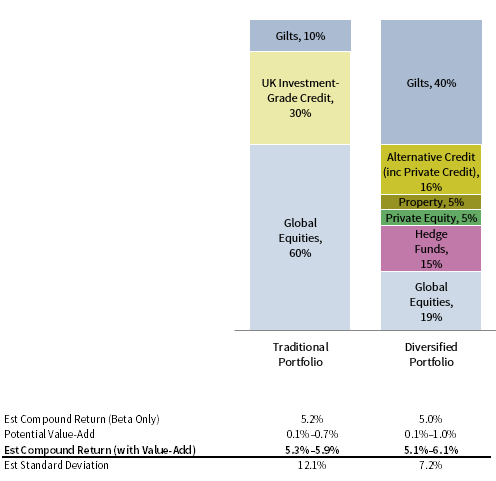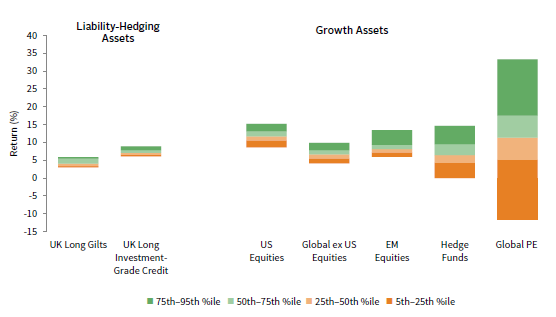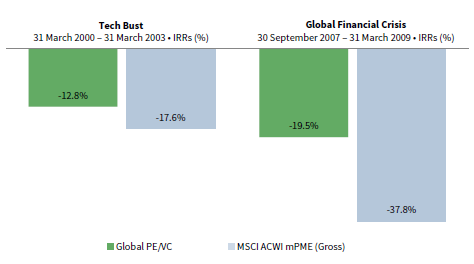On the go: Trustees and sponsors of defined benefit schemes should increase their asset allocations to alternatives and hedge funds in light of high valuations and stretched yields, Cambridge Associates urges in new research.
A report published on Wednesday warns that UK pension schemes with a large allocation to publicly listed equities may face bleak prospects with global stock market valuations so stretched.
The investment firm recommends switching to alternative assets such as private credit, private equity and real assets, which may outperform a traditional growth portfolio on a risk-adjusted basis.
The greatest opportunities for additional return lie within growth asset classes, with the research pointing to a return differential between top-quartile and median long UK investment-grade credit managers of just 0.8 per cent, compared with 1.2 per cent in global equities, 3.1 per cent in hedge funds, and 6.2 per cent in global private equity as at December 31 2018.

Source: Cambridge Associates
The report states: “Private investments have become increasingly integral to a well-constructed and diversified portfolio as the number of public equity stocks has fallen by nearly 50 per cent since its peak in 1996.”
Cambridge Associates says private investments have demonstrated outperformance versus public markets over appropriately long periods of time; private equity, for example, has outperformed its public market equivalent by 5.1 per cent and 5.6 per cent over 10 and 20 years, respectively.

Source: Cambridge Associates
Hedge fund selection is notoriously difficult, with only 5 per cent of the approximately 8,000 hedge funds worldwide meriting investment by pension schemes.
Alex Koriath, head of the European pensions practice at Cambridge Associates, warns: “Trustees should be extremely selective when investing in hedge funds as so many charge high fees, employ excessive leverage and provide little transparency.”
Commenting on the research, Mr Koriath adds: “UK pension schemes have dramatically improved their financial positions over the past decade, but if they want to defend that progress they may have to examine how their growth portfolios are set up to withstand the future market environment.”

Source: Cambridge Associates

























